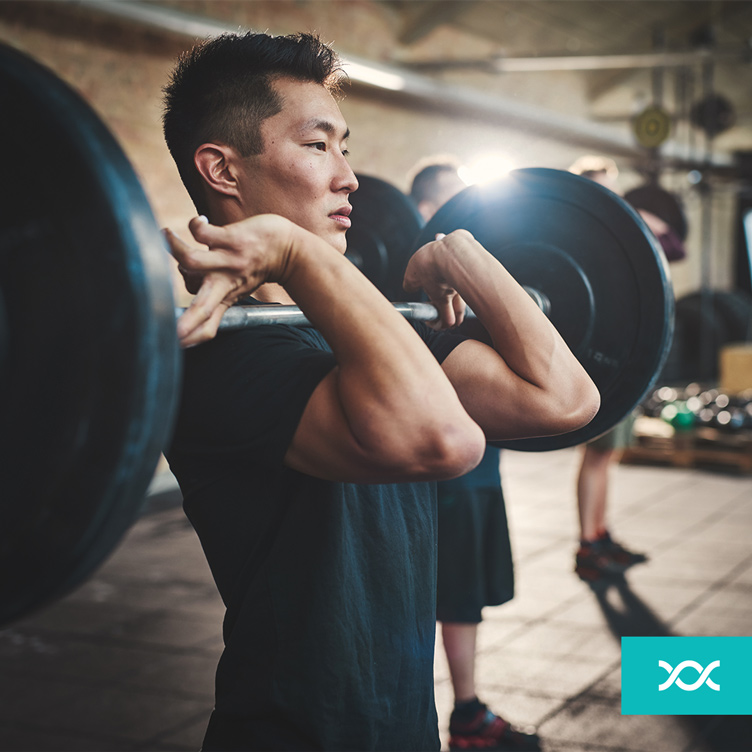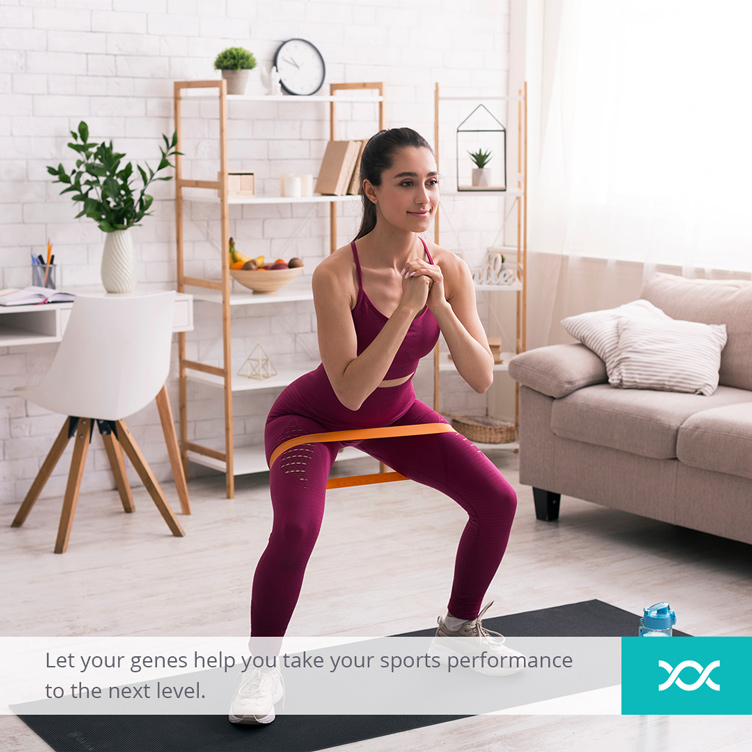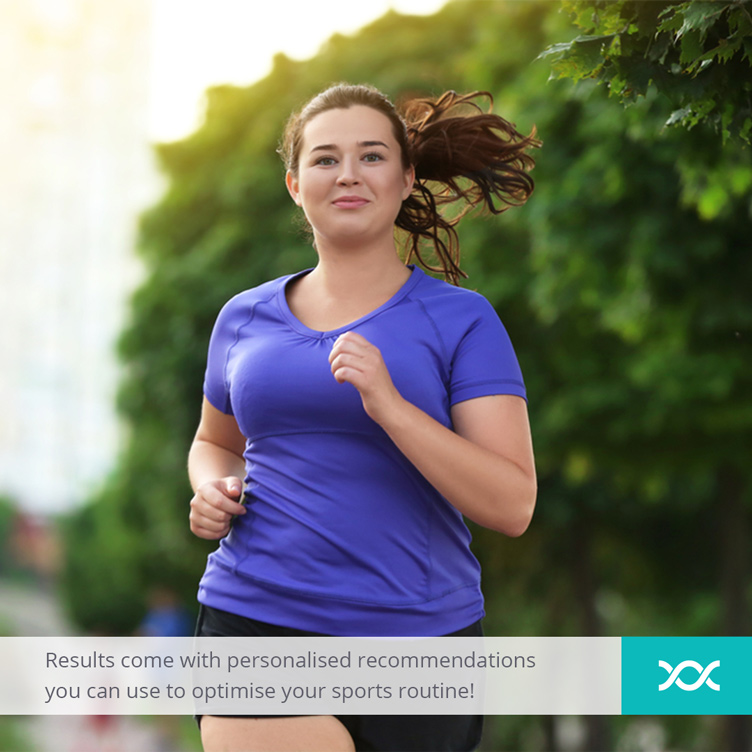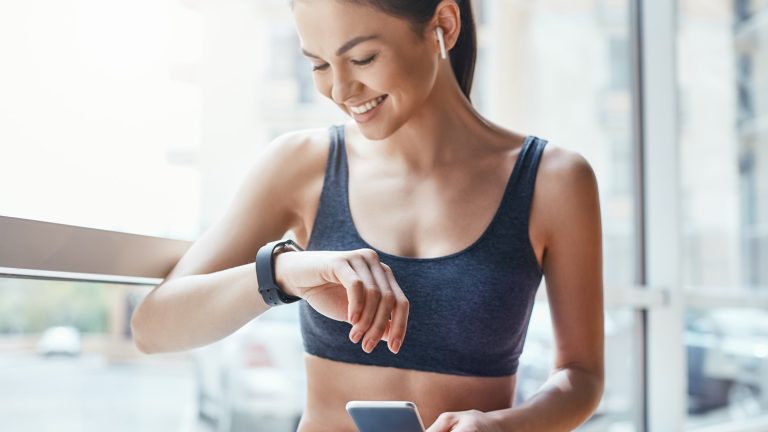Finding the right time to visit the gym without it being crowded and without you being too tired to exercise can sometimes be challenging. But we can make it easier for you! Read further to learn when is the best time to visit the gym – based on the crowd, times of day, and your genes!
So, you’ve decided to start visiting the gym regularly. Yay for you! You usually go after work, around five, but you begin to notice something interesting. This is the time when everyone goes!
The treadmills are always taken, there’s a cue for the rowing machine, and for some odd reason, someone is constantly on the seated leg press. This blows up your entire workout routine. You leave, try to shift your schedule, and visit the gym in the evening. It’s less crowded, but you aren’t performing the way you’re used to, and you get sleepy after only 20 minutes.
What now?
Keep reading and discover how to adjust your training to your gym’s peak hours, your body, and your genes.
IN THIS ARTICLE
When is the best time to go to the gym?
The gym gives you access to various types of exercise equipment, such as mats, free weights, dumbbells, ellipticals, training benches, and much more. Some gyms also provide classes and other group activities, allowing you to exercise with friends. Although the best time to hit the gym depends on various factors, including your schedule, work, preferences, and even your genes, we’ll first dive deeper into when you should exercise to avoid the crowd and maximise the effectiveness of your workout with the fewest distractions.
If you’re tired of fighting off people just to get to some basic equipment, there are certain times in the day that are usually less crowded. Of course, this doesn’t mean that this is a rule set in stone. It’s different from location to location, and it’s impossible to predict the trend at your local gym.
How to avoid peak gym hours?
As mentioned, location is everything. To avoid having an audience while doing your squats in a gym in the city, avoid these times:
6:30 – 8 a.m.
11 a.m. – 1 p.m.
5 – 7:30 p.m.
For suburban gyms, avoid these peak times:
6:30 – 9 a.m.
9:30 – 11a.m.
5:30 – 8 p.m.
If you can, try to squeeze in a lunchtime workout. That’s when you’ll have some peace and quiet to complete it without outside disturbances.
If you have a 24-hour gym in your town and you’re a night owl, try going in between 10 p.m. and 6 a.m. That’s when gyms will most likely be empty.
Of course, we’re talking weekdays here. If you can, try visiting the gym during the weekends – Saturday and Sunday afternoons are usually much less crowded than, say, Mondays. Since most people try to get to the gym early and have the remainder of the day to do whatever they choose, try going after 10 a.m. and see how empty the gym looks.
To sum it up: gyms are usually the least busy mid-afternoon (11 a.m.–3 p.m.) or late evening (any time after 7 p.m.). If you plan to go during the weekend, aim for mid to late afternoon (2–5 p.m.).

What is the best weekday to go?
If visiting the gym during the weekend is not your cup of tea, and you’d rather squeeze your workout routine into your workweek, try Tuesdays and Thursdays. Why? Well, the logic behind is quite simple.
Typically, most people stick to a weekly routine of working out every other day, starting Monday. People are motivated at the beginning of the week and feel well-rested because of the weekend. If that’s the case, we can then assume they’ll continue with Wednesdays and Fridays. You guessed it – these days will be busier than Tuesdays or Thursdays.
If you’re trying to avoid the crowds and ensure no one is watching how much you can bench press, consider making it a habit to start your gym routine on Sunday. Also, don’t disregard the holiday time – you’ll get a head start on your New Year resolutions and enjoy mostly empty gyms! However, January may not be your month of choice for starting a gym membership if you’re not fond of collective spirit during your training.
Have a backup workout plan
Even though we have suggested the best days and times to go to the gym, there is no way to always dodge the crowd. However, if you come to the gym and it’s busy, don’t fret! Make sure to be prepared and always have a backup plan. It’s best to have a flexible mindset that can adjust to fast changes. That way, you can modify your workout plan and use the machines that are available, and still get a great workout in!
Plus, this will force you to mix up your routine a bit and you’ll end up using stations you never did before. Which is also excellent for your muscles! You may find something you actually enjoy but weren’t familiar with before.
The spotlight effect
Many people struggle with crowds in the gym as they feel someone is always looking at them, judging their posture, body, hair, or whatever they feel unconfident about.
This is also called the spotlight effect: it refers to the tendency we have to overestimate how much other people notice about us. Many of us experience this – you know when you accidentally wear a stained shirt to work, believe everyone will notice and judge you for it, but no one really does? This happens because we tend to (falsely) think that our viewpoint is the same as other people’s. This is called “egocentric bias”. But of course – it isn’t real. Just like you do, others also primarily focus on themselves.
Keep this in mind, and if you can, try to ignore the crowds and other people who are there – focus on your exercise and what your body is telling you! You’ll get much more out of your workout routine, and it’s what most people are doing anyway. It’s not like they came just to gawk at what other people are doing – you’re all there with one common goal. To improve!
Be it weight loss, muscle growth, burning calories, or if you exercise just to clear your mind: if you appreciate working out, you should always aim to stay in tune with your body. At the end of the day, the most important thing is not to avoid the crowds, but to find the days and times that work best for you, your mind, and your body!
How can you do that? It’s quite simple – listen to your circadian rhythm!
The secrets of your circadian rhythm
Let’s see how your body can help you decide when the best time to break a sweat is.
Whether you are an early bird or a night owl partially depends on your unique circadian rhythm. The circadian rhythm is the 24-hour internal clock running in your brain, telling your body when to sleep, get up, or eat. It even regulates your body’s temperature and hormone levels. We often call it the “body clock”.
Understanding your internal biological clock is the first step towards quality sleep, wellbeing, and improved sports performance! It can help you adjust your daily activities for optimal productivity; you just need to understand it.

How can you discover your internal clock?
You can try early morning workouts, afternoon and evening exercises and see how you respond to these activities over time. Or hire a personal trainer, work with them for a few months and see what they think. Or, avoid this trial and error phase altogether!
All you have to do is discover your genes.
With the MyLifestyle DNA test, you can dive deep into your internal clock, which has a lot to do with your genes. Your genetic makeup indicates whether you are more likely to be a morning, evening, or intermediate type of person! Heritability estimates suggest that genetic factors are responsible for up to 50% of the population’s variability in circadian timing.
Knowing this information has a crucial impact on whether you should wake up early and hit the gym before work or wait until the evening and build muscle then. If you’re a morning person, it’s much more likely that you reach your peak performance in the morning. It means you’ll also be more productive, focused, and will likely get better results from your workouts at the crack of dawn.
On the other hand, if you’re an evening person and despise morning exercisers, you should try evening workouts! Modifying your training to different times of the day based on your internal clock will help your sports performance and immensely benefit your mood.
Your genetic makeup is responsible for an enormous number of things. For example, it can help you find your optimal nutrition and diet plan, teach you how to manage stress and sleep, how and when to train, take care of your skin, which vitamins to take, and so much more!
The MyLifestyle DNA test can show you the ideal time to work out, based on your genetic profile, which will help you get the most out of your exercise routine. In fact, an entire chapter is dedicated to sports and recreation! You will get a chance to determine which sports activities best align with your body’s natural preference and use them to achieve your sports goals and continual wellbeing. With several different analyses, you can learn about:
• Your chances for muscle cramping,
• whether you have a predisposition for endurance or power,
• if you’re a warrior or worrier,
• your lean body mass potential,
• how fast you’re predisposed to recover after exercise,
• your heart rate recovery predisposition,
• your risk for soft tissue injury,
… and much more!
It doesn’t matter if you’re an amateur or a pro athlete; this knowledge is crucial for reaching the next level of your sports performance journey. Discover more reasons to do the MyLifestyle DNA test here.

At the end of the day, all that matters is that you feel good. Be it during strenuous exercise or just a brisk walk – make sure your mind is in the right place and you’re not overstressing yourself.
Don’t let working out become something you’d rather avoid. Instead, listen to your body and adjust your sports activities accordingly – that way, you’ll do it to feel better, and you won’t get tired of it.
Sources
- https://www.mamamia.com.au/best-time-to-go-to-the-gym-workout/
- https://www.livestrong.com/article/445966-when-is-the-best-time-to-go-to-the-gym/
- https://greatist.com/move/best-gym-machines#horizontal-seated-leg-press
- https://steelsupplements.com/blogs/steel-blog/when-are-gyms-least-crowded-best-time-to-go
- https://www.verywellmind.com/what-is-the-spotlight-effect-3024470
- https://effectiviology.com/spotlight-effect-stop-being-self-conscious/


















